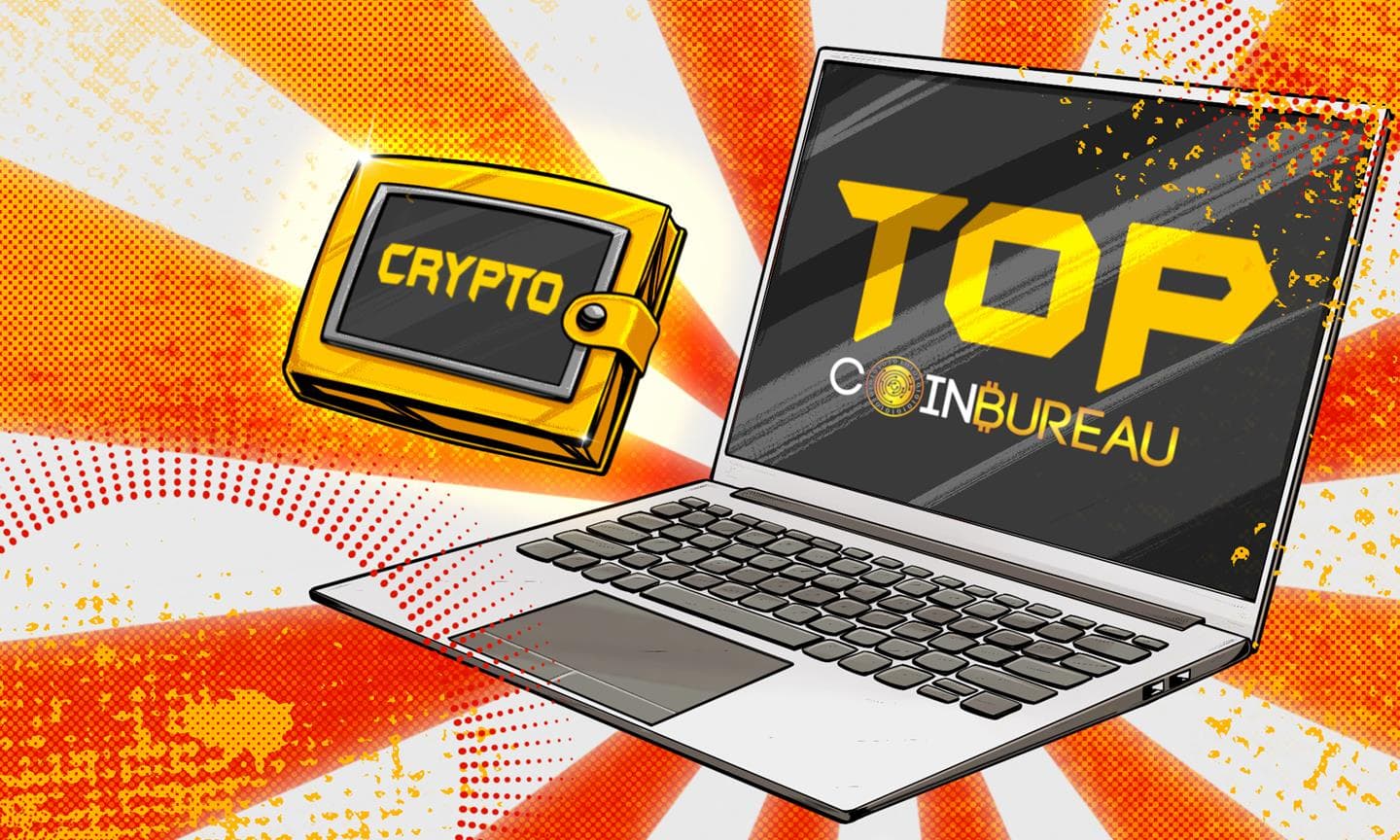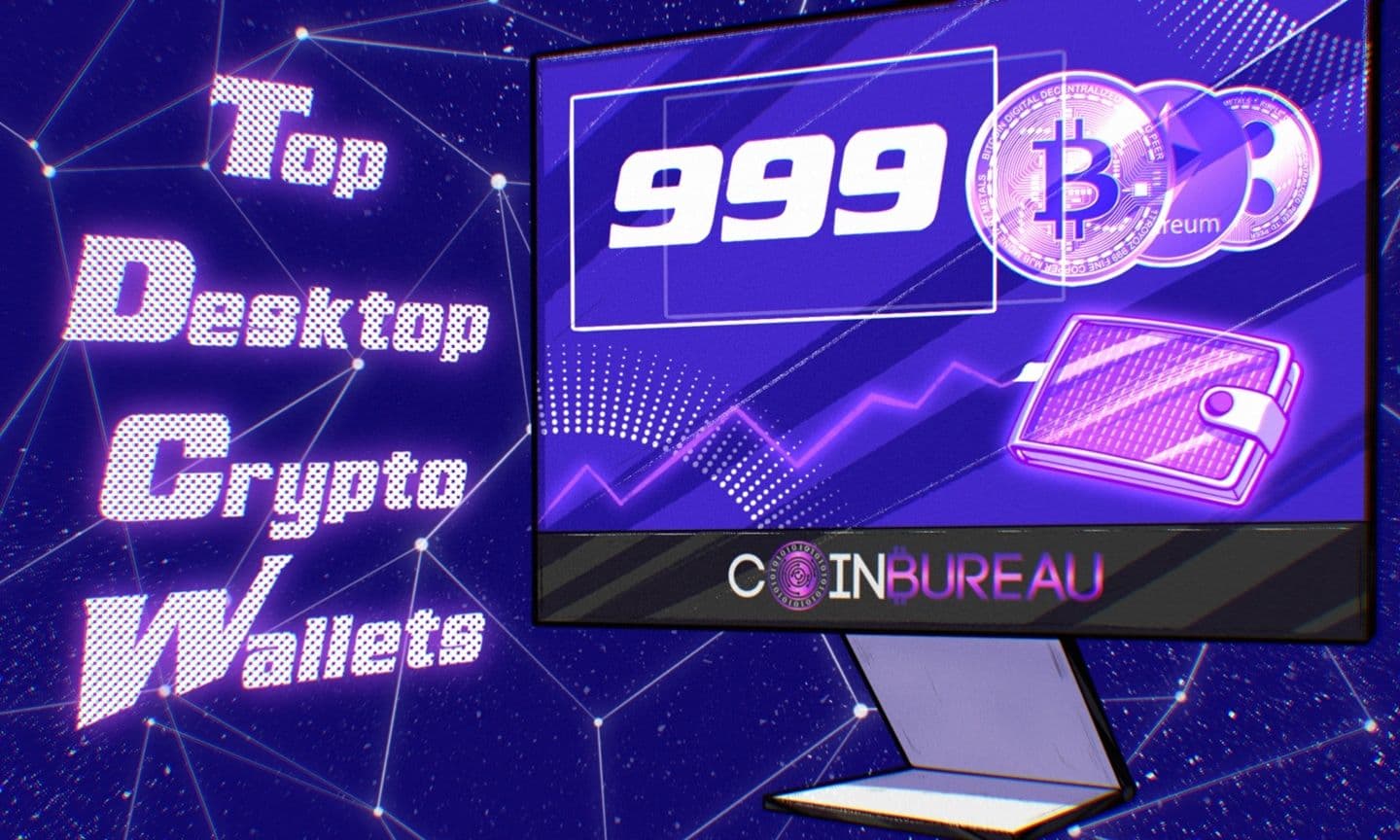Cryptocurrencies have emerged as a revolutionary new breed of finance, gaining momentum and reshaping how we think about money. Just like traditional currencies, crypto requires secure storage solutions like crypto wallets. These wallets, whether custodial or self-custody, allow users to store, manage, and transfer their digital assets securely. With the growing demand for multi-chain capabilities and decentralized finance (DeFi) support, wallets have become more than mere storage tools.
This is where Core Wallet shines. Offering multi-chain support, staking, NFT management, and cross-chain swaps, Core is designed to cater to both beginners and advanced users alike. But how does it stack up in terms of security, usability, and DeFi integration? And what unique features make it stand out?
In this Core Wallet review, we’ll explore its key features, security measures, compatibility with DApps, and much more to help you decide if it’s the right choice for your crypto management needs.
Core Wallet Review Summary
Core Wallet is a versatile, multi-chain wallet designed for managing assets across Avalanche, Bitcoin, Ethereum, and other EVM-compatible blockchains. With features like staking, cross-chain bridging, DeFi integration, and NFT support, it offers a comprehensive solution for most crypto users.
The Key Features of Core Wallet Are:
• Multi-Chain Support: Supports assets on Avalanche C-Chain, Bitcoin, Ethereum, and EVM-compatible blockchains.
• DeFi and Staking: Stake AVAX and access decentralized finance features such as liquidity pools.
• NFT Management: Securely stores and trades NFTs across various platforms.
• Ledger Integration: Compatible with Ledger Nano S Plus and Nano X for offline asset storage.
• Cross-Chain Bridging: Facilitates easy swaps and transfers across supported blockchains.
• Self-Custody Security: Complete user control over private keys with additional 2FA options.
What is the Core Wallet?
 Core Wallet Focuses on Multi-Chain Compatibility, DeFi Integration, and Secure, User-Controlled Asset Management. Image via Core
Core Wallet Focuses on Multi-Chain Compatibility, DeFi Integration, and Secure, User-Controlled Asset Management. Image via CoreThe Core Wallet is a self-custody, multi-chain wallet built primarily for managing assets on the Avalanche blockchain but also designed to support other major networks such as Bitcoin (BTC), Ethereum (ETH), and EVM-based blockchains.
This multi-chain feature enables users to store, send, and manage assets from different blockchains seamlessly within a single platform. Launched by Ava Labs, Core Wallet emphasizes user sovereignty, offering a decentralized solution where users retain complete control over their private keys and funds.
Core Wallet’s robust functionality includes bridging assets across chains, facilitating DeFi interactions, and supporting non-fungible tokens (NFTs). This wallet not only simplifies multi-chain asset management but also provides the tools for staking, trading, and participating in decentralized governance, particularly on the Avalanche network.
Furthermore, Core Wallet integrates a built-in portfolio tracker, offering users a clear, real-time overview of their holdings across various networks. This, combined with its focus on self-custody and strong security features, ensures that users have both convenience and protection when managing their digital assets. It’s designed to work harmoniously with the broader Avalanche ecosystem, but it’s equally versatile across other popular blockchain ecosystems.
With Core Wallet’s focus on multi-chain compatibility, DeFi integration, and secure, user-controlled asset management, it serves as a forward-thinking tool for both newcomers and experienced crypto enthusiasts alike. It’s more than just a simple wallet—it’s a decentralized hub for crypto activity.
How to Set Up Core Wallet
Setting up your Core Wallet on mobile is a straightforward process, allowing you to manage crypto securely. Here’s how to get started:
1. Download the Core App
You have to start by downloading and installing the app from the Apple Store or Google Play Store.
2. Choose Setup Method
• Recovery Phrase: Select this to generate a new wallet and securely store your recovery phrase. Make sure to write it down and store it safely.
• Google/Apple Account: You can also create a wallet using your Google or Apple account.
3. Secure Your Wallet
• Create a wallet name and security PIN.
• For enhanced security, Core Wallet supports options like Passkey, Authenticator apps, or Yubikey.
4. Backup Your Wallet
If using a recovery phrase, you can view it later by navigating to "Security & Privacy" and selecting "Show Recovery Phrase." It’s essential never to share this phrase with anyone, as it’s the key to your funds.
Core Wallet Review: Features
The Core Wallet offers a comprehensive suite of features designed to cater to crypto enthusiasts managing assets across multiple blockchains.
Multi-Chain Support
As a multi-chain wallet, Core supports major networks like Bitcoin (BTC), Ethereum (ETH), and EVM-based blockchains, allowing seamless transfers and swaps. Its smooth cross-chain bridging functionality is particularly beneficial for users who manage assets across multiple ecosystems. While it’s tailored for the Avalanche blockchain, Core's ability to handle diverse digital assets makes it versatile for various portfolios.
Staking and DeFi Integration
One of the wallet's major highlights is its deep integration with DeFi. Users can stake AVAX and participate in liquidity pools, gaining direct access to the Avalanche blockchain’s DeFi ecosystem. Staking rewards are visible within the wallet, making it easy for users to track their earnings.
NFT Support and Management
Core also provides robust NFT management features, enabling users to store, trade, and manage NFTs effortlessly. The wallet’s built-in features for viewing and managing NFTs make it a reliable option for users who are active in the NFT space.
Portfolio Tracking
Core Wallet incorporates a real-time portfolio tracker that offers users a detailed overview of their holdings across different blockchains. The portfolio dashboard is user-friendly, providing data on market trends, asset prices, and transaction history. Users can also execute cross-chain swaps directly within the wallet, making it a one-stop solution for multi-asset management.
Security Features
As a self-custody wallet, Core puts full control of assets in the hands of the user. Core's private key encryption ensures users’ assets are secure, with no third party having access to their private keys. The wallet allows users to further bolster security through Passkeys or Authenticator apps, providing options for enhanced protection.
Ease of Use and Interface
The user interface is designed to be intuitive and beginner-friendly. Whether on the mobile or desktop version, the streamlined design makes it easy to navigate through its features, from staking and portfolio tracking to cross-chain swaps. Core also integrates seamlessly with decentralized applications (dApps), making it easy to interact with the broader Web3 ecosystem.
Cross-Chain Bridging
Core Wallet supports cross-chain bridging, enabling users to swap assets between supported blockchains. This is particularly useful for users engaged in multiple ecosystems, allowing them to easily move assets between Avalanche, Ethereum, and other chains.
Avalanche DApp Support
Beyond its DeFi functionalities, Core Wallet also boasts full compatibility with Avalanche DApps, offering users access to decentralized exchanges (DEXs), yield farming platforms, and governance protocols native to the Avalanche ecosystem.
Core Wallet Supported Cryptocurrencies
 Core Offers Cross-Chain Bridging, Allowing Users to Swap Assets Across the Supported Blockchains. Image via Core
Core Offers Cross-Chain Bridging, Allowing Users to Swap Assets Across the Supported Blockchains. Image via CoreThe Core Wallet stands out due to its multi-chain compatibility, supporting major networks such as Avalanche (AVAX), Bitcoin (BTC), Ethereum (ETH), and Ethereum Virtual Machine (EVM)-based chains. This gives users the flexibility to manage a diverse portfolio of assets without the need to switch between multiple wallets.
For AVAX users, Core Wallet offers seamless functionality within the Avalanche ecosystem, making it an ideal wallet for those looking to stake or participate in DeFi activities. Additionally, Core supports Bitcoin and Ethereum, making it versatile enough for users invested in the top two cryptocurrencies. Core’s integration with EVM-compatible tokens expands its reach, allowing users to manage assets on any blockchain that supports the Ethereum standard.
Beyond its base cryptocurrency support, Core offers cross-chain bridging, allowing users to swap assets across the supported blockchains. For those heavily involved in both DeFi and NFTs, Core provides full compatibility with Avalanche-based DApps.
Core Wallet Security
The Core Wallet takes a comprehensive approach to security, prioritizing user control and advanced encryption practices. Here's a breakdown of how it works:
Self-Custody and Private Key Control
Core Wallet operates as a self-custody solution, ensuring users retain complete control over their private keys. Unlike custodial wallets where third parties manage user funds, Core’s design ensures that only the user can access and manage their assets. This greatly reduces risks associated with centralized entities, such as hacks or shutdowns. The private key encryption guarantees that sensitive data remains secure from unauthorized access.
Encryption and Recovery Phrase
Upon setup, users are prompted to create a recovery phrase, which acts as the key to recovering their wallet if their device is lost or compromised. This phrase is securely encrypted and must be stored privately by the user, as Core Wallet, like other non-custodial platforms, cannot recover it. This practice ensures that users hold full control of their funds but also necessitates responsibility for safeguarding access.
Two-Factor Authentication (2FA) Options
To enhance security, Core offers Passkeys and Authenticator app integration for two-factor authentication (2FA). This adds an additional layer of protection by requiring a second authentication step beyond the standard login credentials. By implementing 2FA, Core helps mitigate risks associated with phishing or unauthorized access, adding peace of mind for users managing significant crypto portfolios.
Comparison to Competitors
When compared to other self-custody wallets such as MetaMask and Trust Wallet, Core stands out for its emphasis on multi-chain asset management, cross-chain swaps, and integration with DeFi and NFT ecosystems. However, Core's security approach is in line with industry standards, relying on private key protection and 2FA, both of which are seen in most leading non-custodial wallets.
Security in Cross-Chain Operations
One of Core Wallet's unique selling points is its focus on secure cross-chain operations, allowing users to transfer assets between different blockchains securely. Cross-chain swaps and bridging operations can introduce additional risks, but Core has built its infrastructure to ensure transactions remain secure through its encryption protocols and decentralized nature.
Core Wallet's Ledger Integration
 Core Wallet Offers Seamless Integration with Ledger Hardware Wallets. Image via Core.
Core Wallet Offers Seamless Integration with Ledger Hardware Wallets. Image via Core.Core Wallet offers seamless integration with Ledger hardware wallets, such as Ledger Nano S and Ledger Nano X, ensuring enhanced security for users looking to store their assets offline. Here's how the integration works and what to expect:
Connecting Ledger to Core Wallet
To connect your Ledger to Core Wallet, users need to:
1. Install Ledger Live on their device and ensure the firmware is up to date.
2. Download the Avalanche app on Ledger Live, enabling compatibility with C-Chain AVAX tokens.
3. On the Core web or Core browser extension, connect the Ledger device, which allows users to send and receive assets, stake AVAX, and perform cross-chain swaps.
Managing Assets on Ledger
When connecting a Ledger wallet to Core, it’s essential to remember that only C-Chain assets are visible directly on Ledger. Support for P-Chain and X-Chain requires a third-party wallet, which Core facilitates by integrating these features into its platform. Users might not immediately see all accounts or assets when connecting their Ledger. This can occur due to missing derivation paths or setup issues, which can often be resolved by selecting the correct wallet type during setup or importing specific wallet addresses.
Enhanced Security with Hardware Wallets
Using Ledger with Core Wallet adds a critical layer of security, as private keys are stored offline on the hardware device. This ensures that assets are kept safe from potential online threats, and users must physically confirm all transactions by interacting with the Ledger device. This provides peace of mind for users looking to secure large amounts of AVAX or other supported cryptocurrencies.
Staking with Core Wallet
Staking through Core Wallet allows users to participate in securing the Avalanche network and earn rewards in return. The wallet supports two main staking methods; delegating and validating. Let's check out some details.
 The Wallet Supports Two Main Staking Methods: Delegating and Validating. Image via Core
The Wallet Supports Two Main Staking Methods: Delegating and Validating. Image via CoreDelegating AVAX
Users can delegate their AVAX to a validator node without running one themselves. This is ideal for those who want to earn staking rewards but prefer a more hands-off approach. Delegators select from a list of validators based on criteria like uptime and delegation fees. For delegators, it’s crucial to choose nodes with a high uptime (at least 80%) to ensure maximum rewards. On Core mobile, this process is simplified, where users are automatically matched with compatible validators, though manual node selection is still available.
Validating on Avalanche
For more advanced users, Core Wallet offers the option to become a validator by running a full node. Validators play a more active role in securing the Avalanche network and, in return, earn higher rewards. Validators must maintain high uptime to remain eligible for rewards, and the hardware requirements to run a validator node include a reliable internet connection and specific computing power. Users interested in validating can use Core web for this purpose, as Core mobile supports only delegation.
Staking Differences: Core Mobile vs Core Web
The staking process slightly differs between Core mobile and Core web. While Core web allows both delegation and validation, Core mobile is limited to delegation. Additionally, Core mobile automatically handles cross-chain transfers when staking, making it more user-friendly, while Core web offers more control over manual transfers between C-Chain and P-Chain.
Staking Rewards
The amount of rewards users earn depends on the amount staked, the validator's performance, and the duration of staking. Both validators and delegators earn rewards directly from the Avalanche network, making it an attractive, decentralized option for long-term AVAX holders.
Core Wallet’s Compatibility with DApps
The Core Wallet is fully compatible with decentralized applications (DApps) built on the Avalanche blockchain and beyond. Its integration with DeFi platforms, NFT marketplaces, and gaming DApps allows users to interact with smart contracts, manage digital assets, and perform transactions securely within these ecosystems.
Seamless DApp Integration
Core provides a streamlined experience for interacting with Avalanche-native DApps. It enables users to engage with various DeFi protocols directly from the wallet, such as staking, liquidity provision, and decentralized trading. Additionally, Core’s compatibility extends to EVM-based DApps, making it versatile across multiple networks.
NFT and Gaming DApps
For users engaged with NFTs, Core offers functionality to securely store, trade, and interact with NFTs across different platforms. Its integration with gaming DApps also enables players to manage in-game assets and participate in the economy of blockchain-based games. This makes Core a popular choice for users interested in decentralized gaming or NFT trading.
Cross-Platform DApp Compatibility
Core is designed to work across web, mobile, and desktop platforms, providing consistent functionality regardless of how users interact with DApps. Whether users are accessing DeFi platforms or managing NFTs, the wallet ensures a smooth, secure user experience across all devices.
Core Wallet Review: Closing Thoughts
In the ever-expanding world of crypto, the Core Wallet stands out as a versatile and secure tool for managing assets across multiple blockchains. Whether you’re staking AVAX, trading NFTs, or exploring the world of DeFi, Core provides a user-friendly experience with powerful features. Its integration with Ledger offers peace of mind for those prioritizing security, while its multi-chain support simplifies asset management. Core isn’t just another wallet—it’s a comprehensive crypto hub that caters to both beginners and seasoned investors alike.
The wallet’s balance between security and flexibility is impressive. With the power to stake, swap across chains, and even interact with decentralized applications (dApps), Core opens the door to limitless possibilities for users who want more than just a storage solution. Whether you’re looking to dive into DeFi or simply need a secure, multi-functional crypto wallet, Core is definitely worth considering for your digital asset management.
However, be sure to check out the links in the article for a more informed and balanced decision in your crypto career. Good luck!





